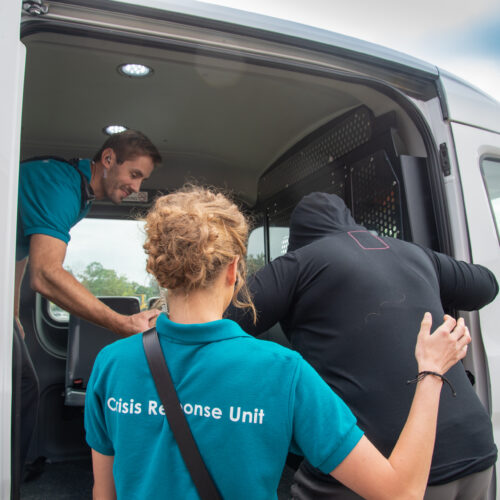CSG Justice Center Launches Nation’s 1st Statewide Crisis Intervention Teams (CIT) Technical Assistance Center in Pennsylvania

Pexels
Communities across the Commonwealth of Pennsylvania are committed to strengthening their crisis response efforts to improve both public safety and the outcomes of people experiencing behavioral health crises related to mental health and substance use. To support these efforts, The Council of State Governments (CSG) Justice Center has partnered with the Pennsylvania Commission on Crime and Delinquency (PCCD) and CIT International to launch the first statewide Crisis Intervention Team (CIT) Technical Assistance (TA) Center in the country.
This TA center plays a key role in Pennsylvania’s strategic efforts to enhance coordinated responses to behavioral health crises throughout the Commonwealth.
“Crisis intervention programs and trainings have made a critical difference for individuals experiencing crisis…This new initiative marks a major step forward in how we support communities across Pennsylvania responding to individuals when they need it most,” said Jackie Weaknecht, director of PCCD’s Office of Justice Programs. “The CIT Technical Assistance Center will not only help counties build and strengthen their CIT programs, but it will also ensure that they’re grounded in best practices, connected with others doing the work, and equipped with the tools needed to create real, lasting change. It’s about building a smarter, more compassionate response system.”
What Does a Crisis Intervention Team Do?
CIT is a nationally recognized model that helps law enforcement and other first responders safely and effectively engage with people experiencing mental health and/or substance use emergencies.
CIT programs are already active in many counties across Pennsylvania and are part of a larger movement to build stronger, more compassionate crisis response systems, including the rollout of the 988 Suicide & Crisis Lifeline.
With this statewide TA center, agencies will have access to quality training and resources, at no cost, that can strengthen current responses and assist agencies looking to build or sustain their own CIT.
Strengthening Crisis Response
Through the creation of this new TA Center, Pennsylvania is strengthening and streamlining its statewide crisis response system while equipping first responders with the training and tools needed to effectively support residents in crisis.
Agencies will now be able to access a one-stop shop to start, strengthen, or expand their local CIT programs, and, as a result, public safety and public health efforts will be more aligned than ever before. CIT TA center services will include free trainings, data support, resource gathering, and peer learning opportunities—all tailored to meet the unique needs of each community.
“This statewide approach sends a message to the community that we care and that we’re invested with you. I can’t think of a better program that a state could truly invest in that pays dividends back into the community like CIT does. I’ve seen it firsthand. It’s a program that improves people’s quality of life, and to be honest with you, it saves lives,” said Ernest Stevens, deputy division director of CSG Justice Center’s behavioral health division.
How to Request TA Support
Agencies or organizations in Pennsylvania interested in receiving TA through the Pennsylvania CIT TA Center should complete this request form.
Upon submitting the form, they will receive a response within 5 business days.
Learn more about how your state can establish a state TA center.
ABOUT THE AUTHORS




This May, the state of Washington passed legislation supporting the expansion of alternative response teams (sometimes called community…
Read More Developing a Common Definition for Community Responder Programs
Developing a Common Definition for Community Responder Programs
This May, the state of Washington passed legislation supporting the expansion of…
Read More













